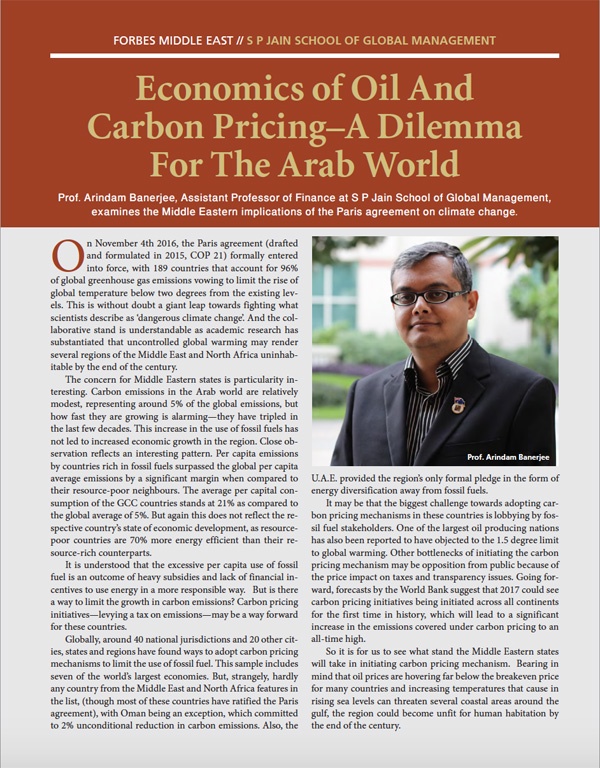Make an Enquiry
TOLL-FREE NUMBER:
1800-212-1827

The use of fossil fuels by the world’s economies has been increasing by an alarming rate. Heavy subsidies and the lack of financial incentives to use energy in a more responsible way could be one of the culprits. “The concern for Middle – Eastern states is particularly interesting. Carbon emissions in the Arab world are relatively modest, representing around 5% of the global emissions, but how fast they are growing is alarming – they have tripled in the last few decades.” shares Prof. Arindam Banerjee as he examines the Middle Eastern implications of the Paris agreement on climate change for Forbes ME.

Make an Enquiry
TOLL-FREE NUMBER:
1800-212-1827
ABOUT US
SUBSCRIBE TO OUR NEWSLETTER
We’d love to share updates about our latest events with you. Sign up and get our newsletter delivered to your inbox.
© 2025 S P Jain School of Global Management
Name of PEl (Private Education Institution): S P Jain School of Global Management | Registered with Skills Future Singapore Agency (SSG) | PEI Registration Number: 200516544Z | Period of Registration: 09 May 2023 to 08 May 2029.
© 2025 S P Jain School of Global Management
S P Jain School of Global Management Pty. Ltd. CRICOS Provider Code: 03335G
© 2025 S P Jain School of Global Management
© 2025 S P Jain School of Global Management
S P Jain School of Global Management Pty. Ltd. Provider Category: Institute of Higher Education. TEQSA Provider Identification: PRV12041. CRICOS Provider Code: 03335G.
S P Jain School of Global Management Pty. Ltd. CRICOS Provider Code: 03335G.
The summer program is not approved or attested by KHDA and does not result in an award accredited under the Australian Qualifications Framework.